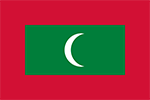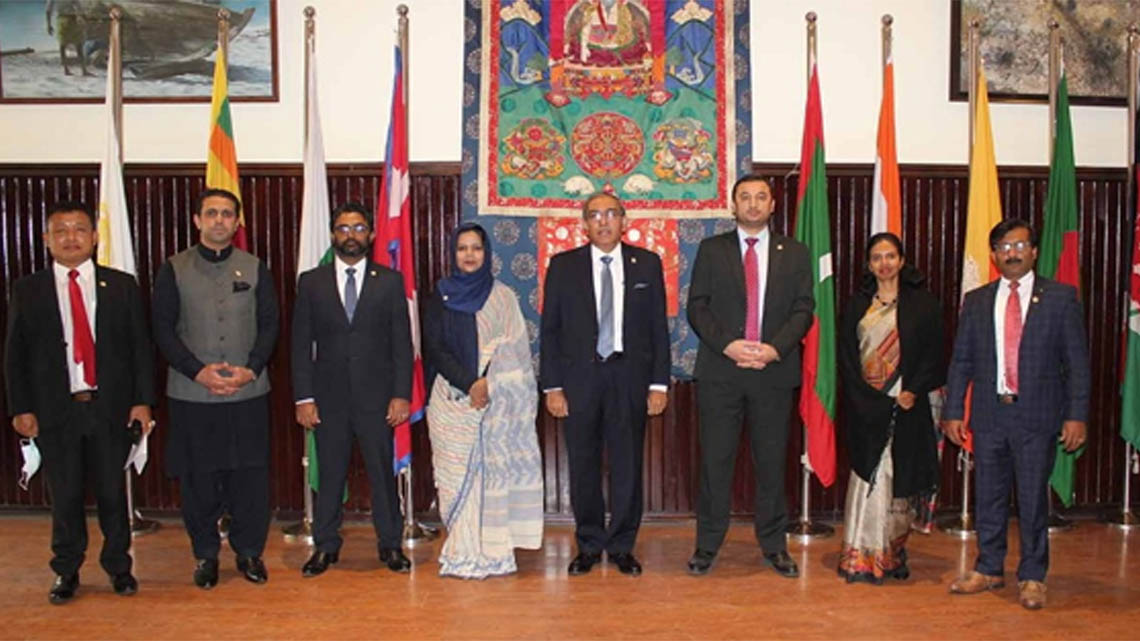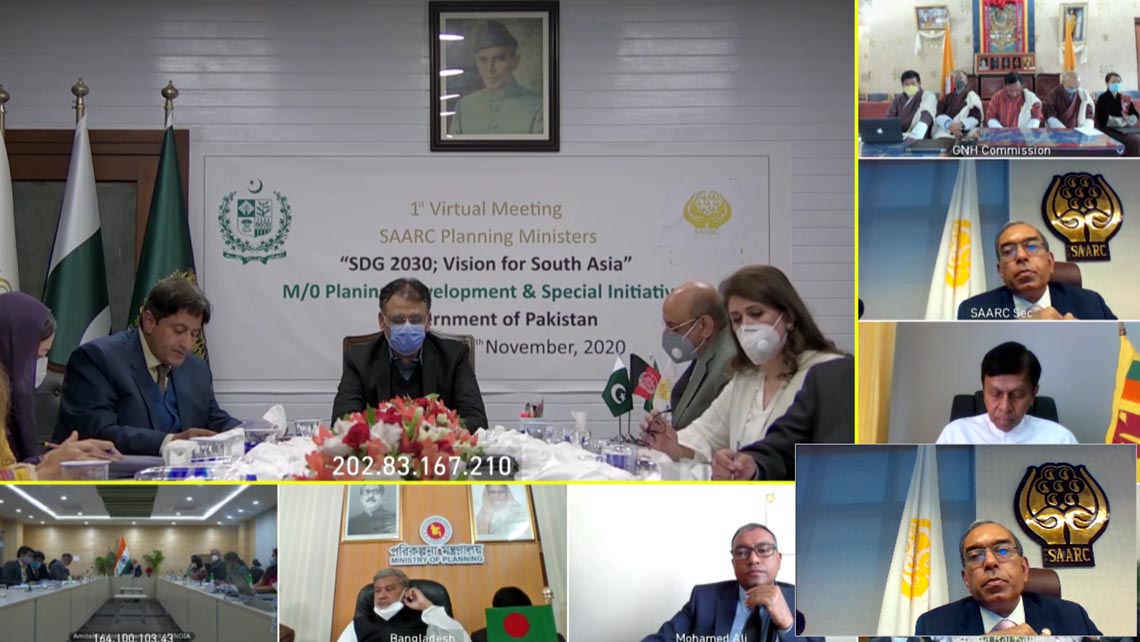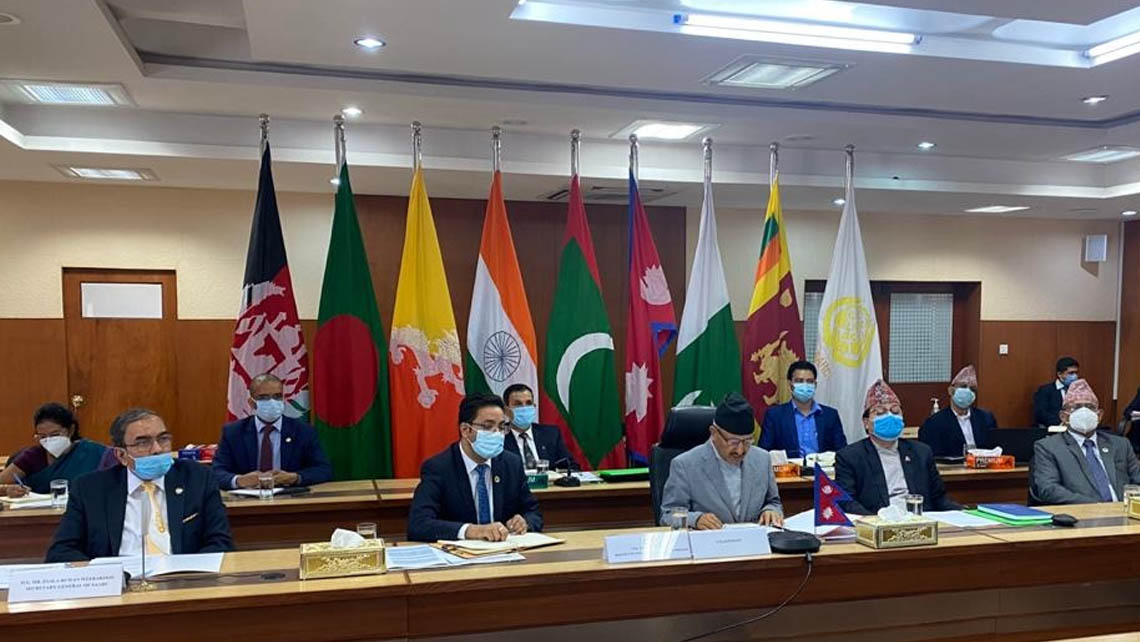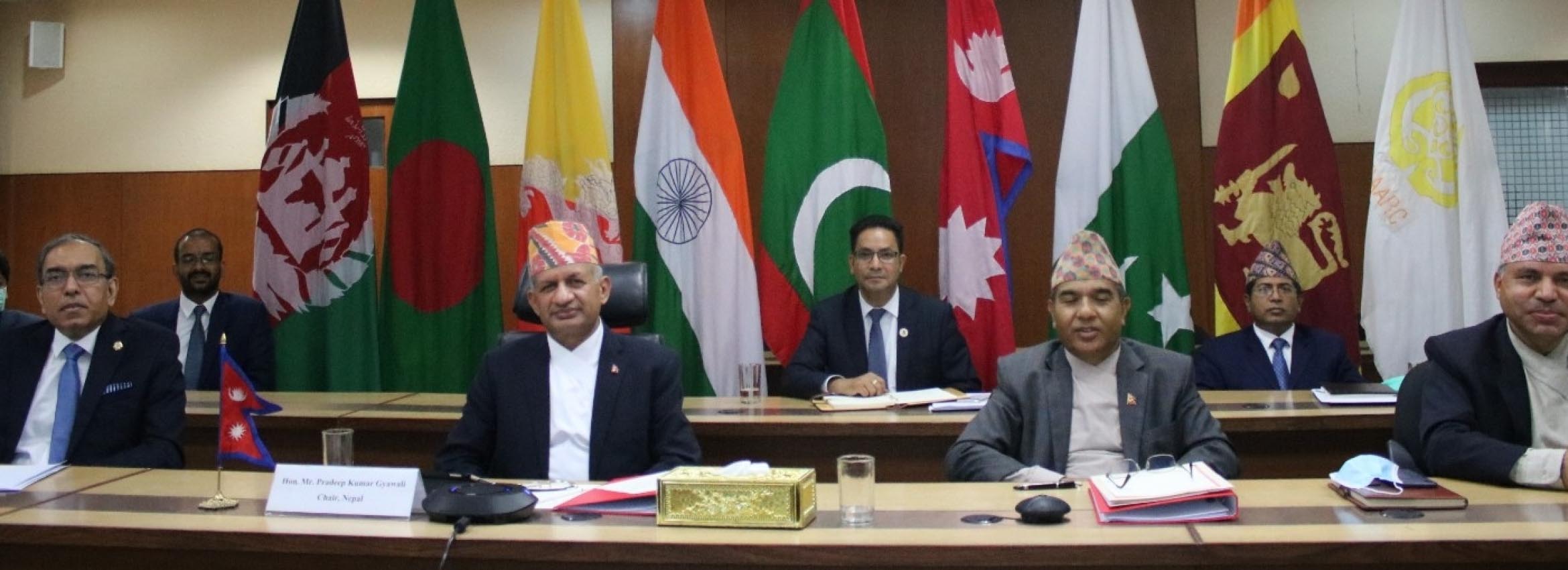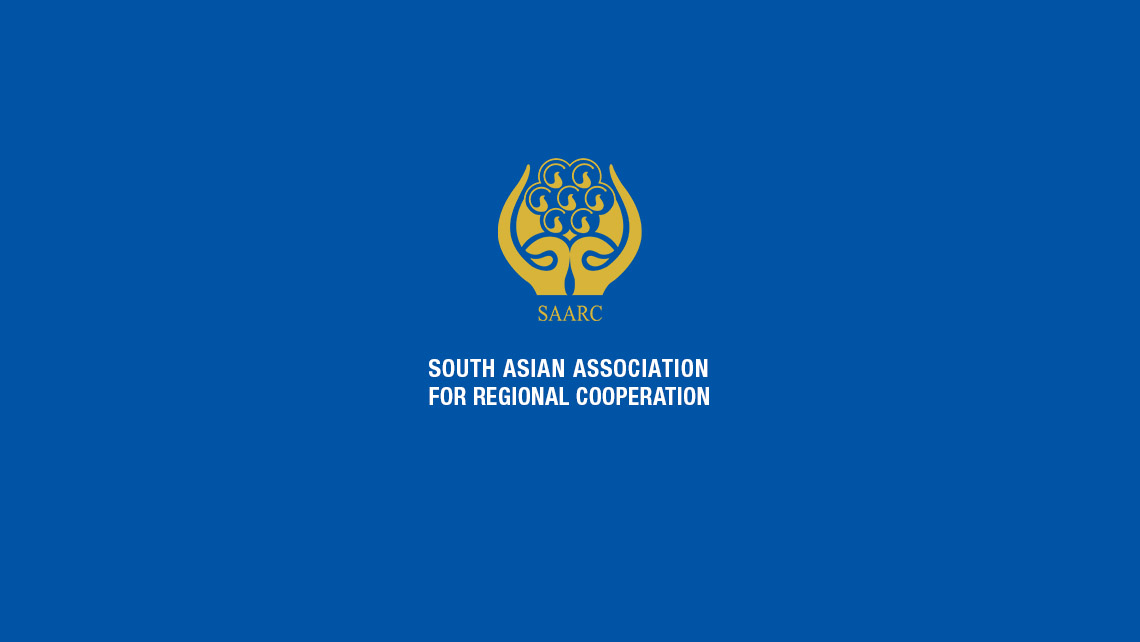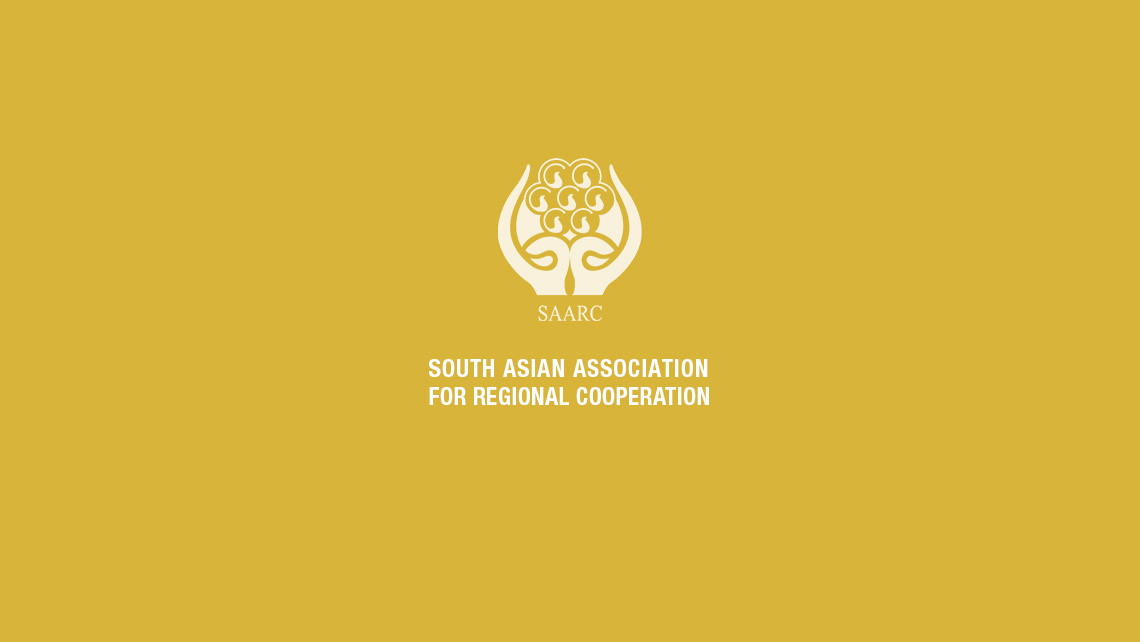The Member States of the South Asian Association for Regional Cooperation (SAARC) observed the Thirty-sixth Charter Day of SAARC today. SAARC comprises Afghanistan, Bangladesh, Bhutan, India, Maldives, Nepal, Pakistan and Sri Lanka as members. Its Secretariat is based in Kathmandu, Nepal.
The Heads of State or Government of South Asia founded SAARC at the First SAARC Summit in Dhaka, Bangladesh, by adopting its Charter on 08 December 1985. Since then, 08 December every year is commemorated as the SAARC Charter Day.
As enshrined in its Charter, the primary objective of SAARC is to promote the welfare of the peoples and to improve their quality of life through accelerated social progress and economic development in the region. A forum of eight countries in South Asia that are bound by ties of history and culture, SAARC is a tangible manifestation of the determination of its Member States to promote peace, stability, amity and progress in the region through strict adherence to the principles of sovereign equality, territorial integrity, national independence, non-use of force and non-interference in the internal affairs of other States and peaceful settlement of disputes.
SAARC hosted eighteen Summits since 1985. With the declaration of poverty alleviation as its “over-arching goal” at the Twelfth SAARC Summit in 2004, it today facilitates regional cooperation in almost all the spheres of development activity having a bearing on the life and livelihood of its peoples. SAARC’s Specialized Bodies (South Asian University, New Delhi; SAARC Development Fund, Thimphu; SAARC Regional Standards Organization, Dhaka; and SAARC Arbitration Council, Islamabad) and Regional Centres (SAARC Agriculture Centre, Dhaka; SAARC Tuberculosis & HIV/AIDS Centre, Kathmandu; SAARC Energy Centre, Islamabad; SAARC Cultural Centre, Colombo; and an Interim Unit of the SAARC Disaster Management Centre, Gujarat) promote regional cooperation in their respective field.
The Heads of State or Government and/or Foreign Ministers of the Member States issued special messages to commemorate the Thirty-sixth SAARC Charter Day, which are in the Media section in the website.
Also is the Message from the Secretary General of SAARC on the occasion of the Charter Day this year.
Kathmandu, 08 December 2020





